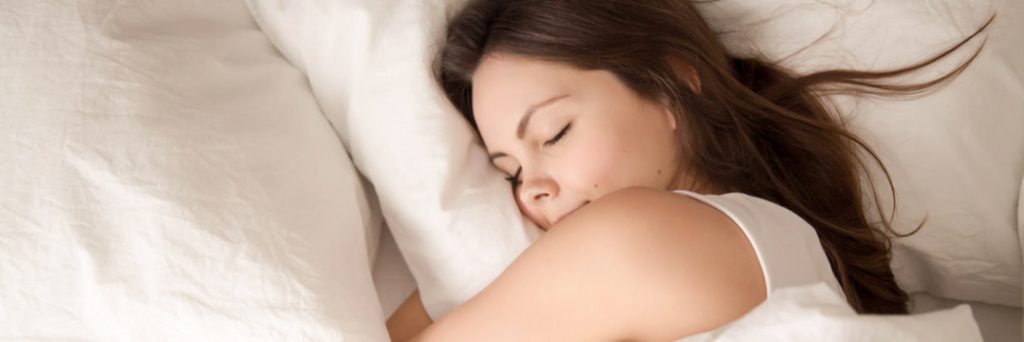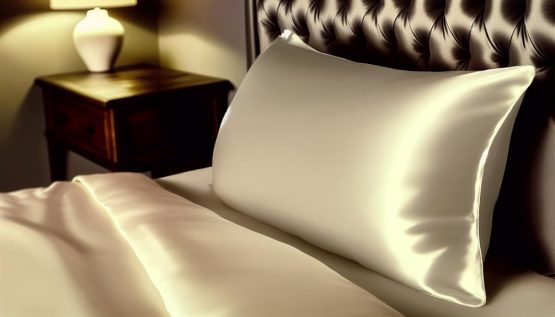Consider these Sleep Tips the things that could interfere with a good night of sleep, from family obligations and work stress to unexpected problems like illness. It is no surprise that quality sleep can sometimes be difficult to find.
Although you cannot control all the things that can affect your sleep, it is possible to adopt good sleep habits. These are some simple tips to get you started.
Sleep Tips: Make Your Bedroom a Sleep Sanctuary
- A sleep schedule should be followed
Allow no more than 8 hours sleep each night. A healthy adult should get at least seven hours of sleep each night. This goal is achievable by most people sleeping no more than eight hours each night.
Every day, get up and go to bed at the same time each morning. Limit the time you sleep on weekends and weeknights to one hour. Consistency strengthens your body’s ability to sleep and wake up.
You should fall asleep within 20 minutes. If that happens, get out of your bed and do something soothing. Listen to or read soothing music. When you feel tired, go back to bed. Continue to do so as necessary.
- Take note of what you eat.
Do not go to bed hungry. Avoid eating large or heavy meals within two hours of bedtime. You might feel uncomfortable.
Also, be cautious with alcohol, nicotine, and caffeine. It can take several hours for the stimulating effects of nicotine or caffeine to wear off, and can disrupt quality sleep. Even though alcohol can make you feel more sleepy, it can also disrupt your sleep later in the evening.
- Make your environment a peaceful one
Make sure your bedroom is comfortable for sleep. This means a room that is cool, dark, and quiet. It might be more difficult to fall asleep if you are exposed to bright light. Avoid long-term exposure to light-emitting screen before bedtime. To create a comfortable environment, you can use room-darkening shades or earplugs to help.
You might be able to sleep better if you do calming activities before bed, like taking a hot bath or using relaxation techniques.
- Daytime naps should be limited
Nighttime sleep can be disrupted by long daytime naps. You should limit your nap time to no more than 30 minutes per day.
You might have to take a nap if you work at night.
- Include exercise in your daily life
Better sleep can be promoted by regular physical activity. However, avoid being too active close to bedtime.
It might also be beneficial to spend time outdoors every day.
- Take control of your worries
Before you go to bed, resolve any worries and concerns. Write down your thoughts and put them aside for tomorrow.
It might be helpful to learn how stress management can help. Starting with the basics like organizing, prioritizing and delegating tasks. Meditation can also help with anxiety.
When to call your doctor
Nearly everyone experiences occasional sleeplessness. However, if you experience frequent problems sleeping, consult your doctor. You can get better sleep by identifying and treating the underlying cause.
Sleep: A healthy habit that promotes weight reduction
If you don’t get enough sleep, it’s difficult to lose weight and maintain it. It’s difficult to exercise or eat well when you are tired. Insufficient sleep can lead to weight gain.
Many people believe that exercise and diet are the only way to be healthy. It’s not easy to lose weight and maintain it if you don’t get enough sleep. It’s much more difficult to eat well and exercise when you are tired. Insufficient sleep can lead to weight gain in children and adults, as well as other serious health conditions like sleep apnea.
While you are sleeping, many things take place in your body. There are many hormones that are released during sleep, including growth hormones and testosterone, as well as cortisol (primary stress hormone). Insulin is also released at nights, which can affect the regulation and amount of sugar in your bloodstream.
Your “hunger hormones” leptin, ghrelin, and deep sleep are also affected by not getting enough sleep. Leptin is a hormone that is mainly produced in fat cells. It helps your body monitor its energy needs and suppresses hunger. Ghrelin, a hormone that is produced mostly in the stomach but also in the brain, can be found in the brain. Ghrelin promotes hunger and stimulates the desire for food.
Ghrelin can peak when you’re not getting enough sleep, as you may have noticed. Did you know that muffins and bagels are more difficult to resist when you feel tired? Maybe you feel like a bottomless pit when you are tired. You snack all day but never feel satisfied. This could be due to hormones like ghrelin.
It is important to remember that too much sleep can have the same effect on your body as too little. You can gain weight if you don’t get enough restful, deep sleep. It might be time to get rid of your smartphone and other nighttime distractions, and instead focus on quality sleep.

Experiments
Make your bedroom more comfortable. Do you need it darker or lighter? Are you looking for softer pillows? Try it and see if you notice any difference.
You can identify your sleep disturbances such as light, noise and pain.
Unplug! Turn off your TV and phone at least 30 minutes prior to bed. Find a way to relax without a screen by adding on our products to your comfort.





